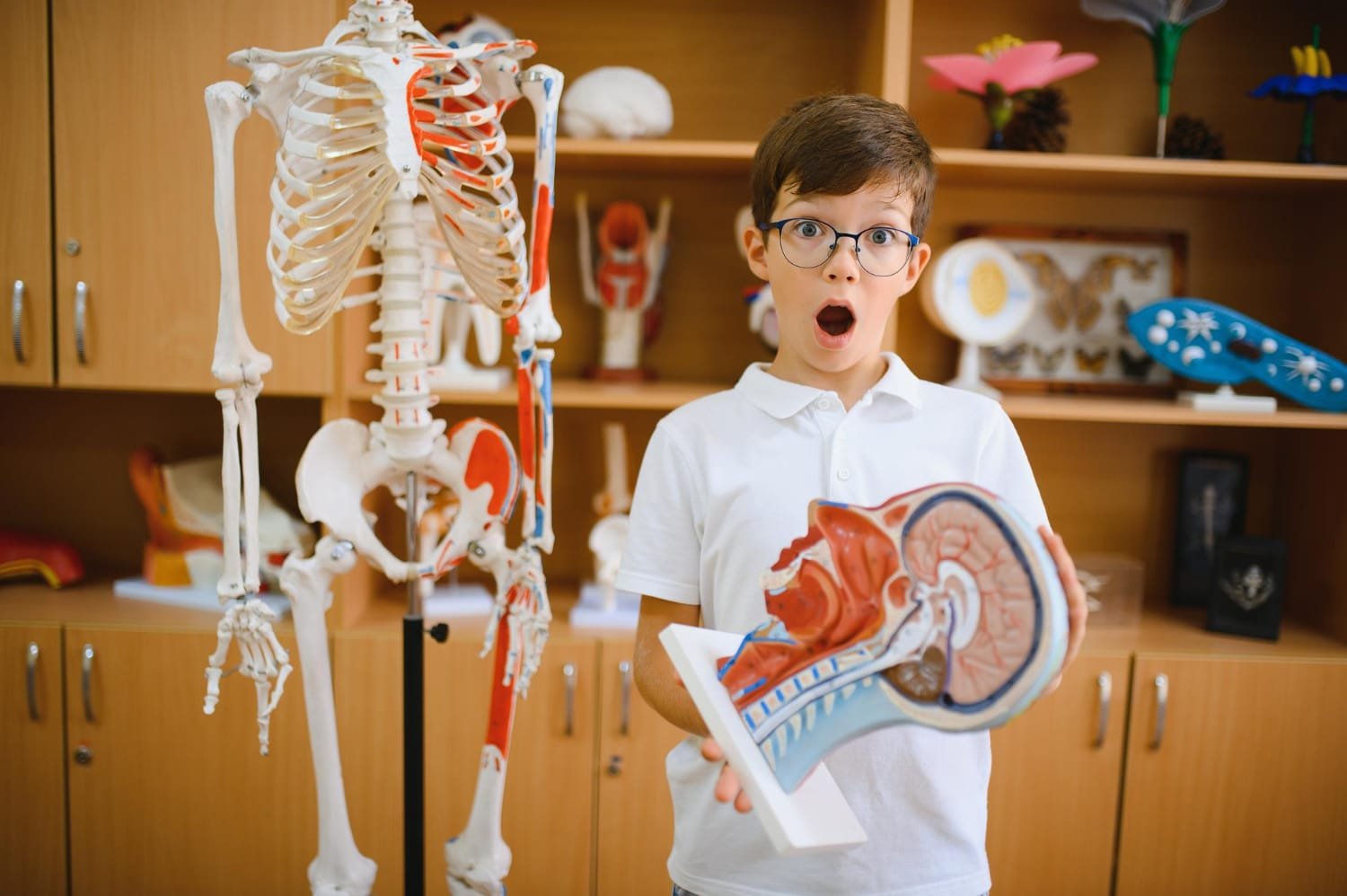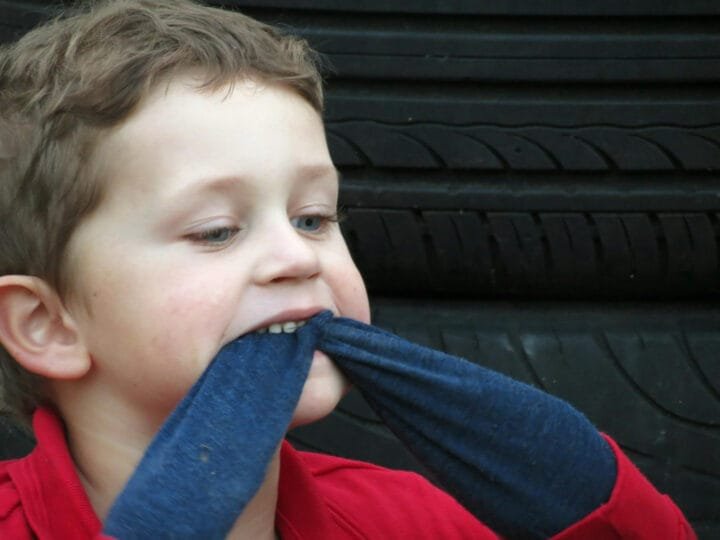When Should Kids Stop Confusing b and d? The Definitive Answer is Here!
Why Kids Hate Onions: The Ultimate Guide to Understanding and Overcoming the Aversion
Why Toddlers Listen to Others But Not to Parents? A Deeper Look
The Importance of Vitamin C for Pregnancy: Benefits, Sources, and Safety
20+ Epic Games to Play in the Woods: Fun, Free, and Fantastic!
Beyond the Slammed Door: Understanding The Sound of a Teen Girl Angry
How to Get Along Better With My Teenage Sons: Mistakes to Avoid at All Costs
90 Fun Things to Do with Teenagers: Simple Ideas for Lasting Memories
My Adult Daughter Talks to Her Friends But Not Me: Am I Losing Her?
Unseen Risks: Unpacking Why Children Should Not Look Over the Younger Sibling?
From Chatterbox to Clam: Why is My Kid Suddenly a Clam Around Certain People?
The Only List You’ll Need: 50+ Couple Things to Do When You Don’t Have Your Kids
Connection Over Correction: Dealing with Teens on Their Phones During Dinner
Debunking the Myth: Why Parents Only Talk About Their Problems?
Timing is Everything: When Is the Best Time to Buy a Breast Pump (From Someone Who Learned the Hard Way)
From the 1900s to Now: The Most Popular Baby Names of Every Decade
Must-Haves for Sports Parents: Essential Gear, Tech, and Strategies for Youth Sports
Newborn Sleep 101: Understanding the “Signs Baby is Too Hot While Sleeping”
What Are Four Activities That Take Place in Family Rooms? Transforming Your Space into a Family Hub
“I Have No Patience for My ADHD Child”: Long-Term Perspectives and Hope

“I Have No Patience for My ADHD Child”: A Path to Understanding and Acceptance
The Brutal Honesty of ADHD Parenting
Have you ever experienced a surge of frustration so intense it took your breath away? Like a volcano about to erupt, you’re one wrong move away from a meltdown. And what was the trigger? Your lovable, brilliant, and challenging ADHD child. If you’re thinking, “I can’t stand my ADHD child.”. I wouldn’t call it a petty affair,’ if it sounds familiar, you’re not alone. These feelings, though laced with guilt and shame, are standard parts of the journey.
But remember, you are not alone on this journey. In fact, a 2019 study published in the Journal of Attention Disorders found that parents of children with ADHD experienced significantly more stress and burnout than parents of children without ADHD. A 2012 report in Pediatrics further confirmed these findings, revealing that 71% of parents of children with ADHD found it psychologically challenging, often feeling ‘less successful’ as parents than others.
Let’s bring some perspective to this struggle and understand the origins of ADHD as a condition. We’ll also learn how, as caregivers, we can navigate this journey with better patience, self–control, and, most importantly, self-care. Remember, taking care of yourself is not a luxury; it’s a necessity in this demanding role.
Decoding ADHD: Beyond the Label
What is ADHD, Really?
First things first, what is ADHD? Attention-Deficit/Hyperactivity Disorder is a neurodevelopmental condition. It affects brain development and function. Think of it as a wiring difference, not a character flaw or bad parenting. ADHD impacts attention, impulsivity, and activity levels. It can manifest itself in various ways. Some kids bounce off the walls with boundless energy. Others struggle to focus, their minds flitting from one thing to the next like a butterfly in a field of flowers. And some experience a combination of both. Dr. Russell Barkley, a leading ADHD expert, describes it as a “disorder of executive function,” meaning it affects the brain’s ability to plan, organize, and regulate behavior.
The ADHD Brain: A Different Kind of Wiring
This “difference in wiring” can make everyday life feel like an uphill battle. Imagine completing a puzzle while riding a rollercoaster. That’s the daily reality for many ADHD children. And for parents, it can be exhausting. The constant demands, the impulsive outbursts, the emotional rollercoasters… patience wears thin. But understanding the why behind the behavior is the first step toward compassion. Brain imaging studies have shown that children with ADHD have differences in brain structure and activity. This is particularly true in areas responsible for attention, impulse control, and executive function.
Why is Parenting an ADHD Child So Difficult?
Let’s be honest: parenting children can be challenging. However, parenting a child with ADHD often presents unique hurdles. ADHD symptoms – inattention, hyperactivity, and impulsivity – can create a perfect storm of frustration for both parents and children.
- Inattention: Your child may struggle to follow instructions, complete tasks, or stay organized. This can lead to constant reminders, nagging, and a sense of always being “on.”
- Hyperactivity: Ever feel like your child has an endless supply of energy? This constant motion can be disruptive and exhausting, making it difficult to find calm.
- Impulsivity: Acting without thinking, interrupting conversations, and yelling out answers are hallmarks of impulsivity. This can lead to social challenges, conflicts with siblings, and frequent disciplinary actions.
It’s no wonder that parents of ADHD children report higher levels of stress, anxiety, and even depression. A 2017 study in the Journal of Child Psychology and Psychiatry found that mothers of children with ADHD were twice as likely to experience depression as mothers of children without ADHD.
The 5 C’s of ADHD Parenting: Your Guiding Framework
Feeling overwhelmed? Don’t worry; there’s a framework to help you navigate this challenging terrain. The 5 C’s of ADHD parenting offers a roadmap for creating a supportive and nurturing environment for your child:
- Calm: Maintain a quiet and consistent demeanor, even when your child struggles. Your calm can be contagious, helping your child regulate their own emotions.
- Clear: Provide clear and concise instructions, breaking down tasks into smaller, manageable steps. Avoid overwhelming your child with too much information at once.
- Concise: Keep your communication brief and to the point. Long lectures or explanations may lose your child’s attention.
- Consistent: Establish clear expectations and consequences and enforce them consistently. Consistency helps your child understand boundaries and develop self-control.
- Consequences: Use logical consequences related to the misbehavior. Avoid harsh punishments or power struggles, which can escalate the situation.
Taming the Frustration Beast: Strategies for More Patience
Recognizing Your Triggers: The First Step to Self-Regulation
It’s understandable. You’re human. You hit the glass ceiling. And sure, your ADHD child may annoy you excessively. But here is the problem: shouting, punishing, and monotonous reprimanding often is counterproductive. The situation tends to worsen, damages one’s self-worth, and creates a negative cycle. Then again, how do we manage the frustration beast and learn to be more patient more often?
First, the triggers need to be located. What pushes you off the edge? Is it rude? Fighting back? Or a room that makes a hurricane look tame? Once you find your triggers, you can devise a strategy to control them. This may mean stepping away from the circumstance, ‘cooling down’ through deep breathing, or even exiting the transition zone for a short period. This is till the peace of mind is regained.
Mindfulness to the Rescue: Your Inner Chill Pill
Ever heard of mindfulness? It’s like a superpower for parents. Deep breaths, meditation, or even a quick mindfulness moment can help you hit the pause button before reacting. Think of it as your inner chill pill. Mindfulness enables you to become more aware of your thoughts and emotions in the present moment without judgment. This awareness allows you to choose how you respond rather than reacting impulsively.
Try this simple mindfulness exercise: Take a few deep breaths, focusing on the sensation of your breath entering and leaving your body. Notice the sounds around you, the feeling of your feet on the floor, the temperature of the air on your skin. This can help you ground yourself and shift your focus away from frustration.
Challenge Your Thoughts: Reframe the Narrative
Our thoughts shape our emotions. When frustration strikes, challenge those negative thoughts. Instead of “He’s doing this on purpose to drive me crazy!” try “He’s struggling to regulate his emotions right now.” A simple shift in perspective can make a world of difference.
Cognitive-behavioral therapy (CBT) techniques can help reframe negative thoughts. CBT focuses on identifying and changing unhelpful thought patterns that contribute to negative emotions and behaviors. For example, instead of catastrophizing (“This is a disaster! He’ll never learn!”), try focusing on problem-solving (“Okay, how can we address this situation calmly and effectively?”).
Self-Care is Non-Negotiable: Fill Your Cup First
You cannot give away what you lack. Self-care should come first. Spend some time off, work out, meet some friends, or do something creative. A rested and reenergized you are more tolerant. Don’t forget that self-care is not a luxury; it is a necessity. A parent who takes care of their own needs can be more effective at caring for a child with ADHD.
Embracing Chaos: Acceptance and Connection
Seeing the Child, Not Just the ADHD
Acceptance does not equate to surrendering or approving troublesome behaviors – this is a crucial truth. It is accepting ADHD as part of a child’s life and determining where the child’s strengths lie. It looks at the person as an individual rather than a diagnosis. Remember that your child is not even ADHD. Your child is complete and has distinct gifts, hobbies, and passions.
Positive Parenting is Key: Catch Your Kids Being Good
Move away from punishment. Adopt a more encouraging approach through positive reinforcement. Embrace the good and reinforce it. It does wonders! Studies suggest that positive reinforcement works better than punishment in modifying children’s behaviors, particularly those with ADHD. Concentrate on the good aspects of the child’s activities and praise their work. For starters, don’t just say ‘Good job’. Settle for: ‘Wow! I could see how hard you tried that math problem. I’m happy how hard you tried.’
Realistic Expectations are Required: The Puzzle on a Rollercoaster
Do you recall that riddle on a roller coaster? Shift your expectations. When responding to such tasks, divide them into small units, give instructions, and praise small steps. Do not expect to achieve all three. Aim for improvement, not audacity. And remember that what may be trivial to other kids may be impossible for your kid suffering from attention-deficit hyperactivity disorder. Have tolerance and understanding, and appreciate all their achievements, regardless of their size.
Breaking the Yelling Cycle: Communication is Key
We all lose our cool sometimes. But if yelling is your go-to response, it’s time to find new strategies. Remember the power of connection and communicate calmly and clearly. Yelling can escalate the situation and create fear and anxiety in your child. Instead, try using a calm and assertive tone of voice. Get down to your child’s level, make eye contact, and use simple and direct language.
Communicating Effectively with Your ADHD Child
Active Listening: Truly Hearing What They Say
Active listening is a practical soft skill to bolster rapport with your ADHD child. It requires paying attention to an individual’s spoken and unspoken words, and emotions to grasp their perspective. This promotes a sense of validation and being heard in a child, which diffuses hostility and strengthens the relationship between the two parties.
Clear Instructions: Keep it Simple and Specific
When giving instructions, be clear, concise, and specific. Avoid vague requests like “Clean your room.” Instead, break it down into smaller steps: “First, put your toys in the toy bin.” Hang up your clothes. Finally, make your bed.” You can even provide visual aids, like a checklist or pictures, to help your child stay on track.
Avoid Power Struggles: Choose Your Battles Wisely
Power struggles are a common trap in parenting, especially with strong-willed ADHD children. But these battles often create more stress and resentment. Choose your battles wisely. Ask yourself, “Is this really worth fighting over?” Sometimes, it’s better to let the small things pass and focus on the bigger picture.
Navigating the ADHD Maze: Age-Specific Guidance
ADHD is a lifelong journey. And it looks different at every stage. The challenges a preschooler with ADHD faces is not the same as those of a teenager with ADHD.
The Early Years (Preschool and Early Elementary): Building Foundations
This is often when ADHD becomes apparent. Impulsivity, hyperactivity, and difficulty following directions are common challenges. Focus on establishing routines, clear boundaries, and providing plenty of physical activity opportunities. Preschoolers with ADHD may thrive in environments with structured activities, clear expectations, and frequent positive reinforcement.
- Create a predictable routine: Consistent routines provide security and help children with ADHD feel more in control. Establish regular times for meals, naps, playtime, and bedtime.
- Set clear limits: Children with ADHD need clear boundaries to understand what is expected of them. Define rules clearly and consistently and use positive reinforcement to encourage desired behaviors.
- Provide opportunities for physical activity: Physical activity helps children with ADHD burn off excess energy and improve focus. Encourage outdoor play, sports, or dance classes.
The Middle Years (Late Elementary and Middle School): Academic and Social Challenges
Academic demands increase, social pressures intensify, and emotional regulation becomes even more critical during the middle years. Support their organizational skills, help them develop coping mechanisms, and advocate for their needs at school.
- Organizational support: Help your child develop organizational systems for homework, school supplies, and personal belongings. Use visual aids, checklists, and timers to stay on track.
- Social skills development: Children with ADHD may struggle with communication cues and interactions. Encourage participation in community activities, role-play in social situations, and teach them conflict management strategies.
- Emotional regulation: Help your child identify and express their emotions healthily. Teach them coping mechanisms for managing frustration, anger, and disappointment.
The Teenage Years: Navigating Independence and Identity
Hormones, independence, and identity formation add another layer of complexity during teenage years. Open communication, consistent support, and appropriate boundaries are essential. Help them learn self-advocacy skills and navigate adulthood transition.
- Open communication: Maintain open lines of communication with your teenager. Listen without judgment, validate their feelings, and provide guidance and support.
- Self-advocacy: Empower your teenagers to advocate for their needs at school and in other settings. Teach them how to communicate their challenges and request accommodations.
- Responsibility and independence: Encourage your teenager to take on increasing responsibility for their actions and decisions. Provide opportunities for independence and self-reliance.
Does ADHD improve with age? It depends. For some, symptoms improve as they mature and develop coping mechanisms. For others, the challenges persist. However, with the proper support and strategies, ADHD patients can thrive. Research suggests that while hyperactivity decreases with age, inattention and impulsivity often continue into adulthood.
Understanding ADHD Severity: It’s Not One-Size-Fits-All
It’s essential to recognize that ADHD doesn’t manifest the same way in every child. The Diagnostic and Statistical Manual of Mental Disorders (DSM-5), a guidebook used by mental health professionals, acknowledges this by outlining different levels of severity for ADHD. These levels help clinicians determine the extent to which ADHD is impacting an individual’s life. While the DSM-5 doesn’t explicitly define “5 levels,” it provides detailed criteria for assessing the severity of ADHD symptoms.
Here’s how the DSM-5 helps categorize ADHD severity:
- Mild: Individuals with mild ADHD experience some symptoms, but these symptoms only cause minor impairments in social, academic, or occupational functioning. They may be able to manage their symptoms with minimal support or accommodations.
- Moderate: At this level, symptoms are more pronounced and cause more significant impairments in functioning. Individuals with moderate ADHD may require more support, such as medication, therapy, or educational interventions, to manage their symptoms effectively.
- Severe: Individuals with severe ADHD experience significant impairments in multiple areas of their lives due to the presence of many symptoms in excess of those required to make the diagnosis or several symptoms that are particularly severe. They may need intensive interventions and support to manage their symptoms and improve their quality of life.
The DSM-5 emphasizes that these severity levels are not fixed and can change over time. A child’s ADHD severity may vary depending on factors such as their environment, support systems, and treatment interventions. It’s also important to remember that ADHD is not simply about the number of symptoms a person has but also about how those symptoms impact their daily life.
Finding Your Parenting Style Sweet Spot
Many people assume that an approach can be formulated that applies to all. This, however, is not the case, as each child is different. One of the strategies that, however, seems promising for most children with ADHD is to be assertive. The mother, friend, tiger mom, or daddy war – call it whatever you want within yourself, is described as a blend of warmth, support, plus clear expectations. Parents are supposed to provide boundaries and guidelines but also warmth and care at the same time. Parental control and encouragement, along with empathy, are the most direct and positive benefits of such another parenting style. It assures the child of parental affection yet fosters independence in the child.
Success Stories: ADHD Kids Can Thrive!
Worried about your child’s future? Don’t be concerned! Many ADHD individuals lead successful and fulfilling lives. They may need extra support and accommodations, but their unique strengths can be powerful assets. Think of entrepreneurs, artists, athletes, and innovators. ADHD brains are often wired for creativity and out-of-the-box thinking.
- Michael Phelps: The most decorated Olympian of all time, Michael Phelps, shared his ADHD struggles. His incredible focus and drive helped him swim exceptionally well.
- Simone Biles: The most decorated American gymnast in history, Simone Biles, has also been diagnosed with ADHD. Her ability to hyperfocus on her training and athleticism has propelled her to the top of her sport.
- Richard Branson: The founder of the Virgin Group, Richard Branson, is a successful entrepreneur who attributes his success to his ADHD. He has said that his “restless energy” and “ability to think differently” have been critical to his achievements.
These are just a few examples of successful ADHD individuals. Your child has the potential to achieve remarkable things, too.
Embracing the Journey: A Message of Hope
The journey of parenting a child diagnosed with Attention Deficit Hyperactivity Disorder is not short; it stretches for a lifetime. Setbacks and frustrations will clearly be part of the package. Yet, in equal measure or perhaps even more, it is a journey filled with deep affection, progress, and persistence. It is crucial to form a habit of acknowledging little achievements, not being too harsh on oneself, and asking for help if required. You are not the only one. Also, your child, no matter the challenges or peculiarities, is an outstanding individual who deserves love and acceptance.
Recommend Books
- “Taking Charge of ADHD: The Complete, Authoritative Guide for Parents” by Russell A. Barkley: This comprehensive guide provides a deep dive into ADHD, covering everything from diagnosis and treatment to parenting strategies and educational interventions. Dr. Barkley is a renowned expert in the field, and his book is a valuable resource for parents seeking evidence-based information and practical advice.
- “Driven to Distraction (Revised): Recognizing and Coping with Attention Deficit Disorder” by Edward M. Hallowell and John J. Ratey: This classic book explores the challenges and strengths of ADHD from both a personal and professional perspective. It offers insights into the ADHD brain, provides practical coping strategies, and emphasizes the importance of self-care and acceptance.
- “The Explosive Child: A New Approach for Understanding and Parenting Easily Frustrated, Chronically Inflexible Children” by Ross W. Greene: This book introduces the Collaborative problem-solving approach, a revolutionary method for understanding and managing challenging behaviors in children. It offers practical tools for resolving conflict, building collaboration, and creating a more peaceful family dynamic.
- “Parenting the Strong-Willed Child: The Clinically Proven Five-Week Program for Parents of Two- to Six-Year-Olds” by Rex Forehand and Nicholas Long: While not exclusively focused on ADHD, this book provides valuable strategies for managing challenging behaviors and building positive parent-child relationships. It offers a structured, step-by-step program that can be adapted for children with ADHD.
- “Smart but Scattered: The Revolutionary “Executive Skills” Approach to Helping Kids Reach Their Potential” by Peg Dawson and Richard Guare: This book focuses on developing executive function skills in children, which are often impaired in those with ADHD. It provides practical strategies for improving organization, time management, planning, and self-regulation, empowering children to reach their full potential.
FAQs
Absolutely. Fathers and mothers often feel stressed out and anxious, and perhaps impatient as well. This is because of the situation brought on by ADHD. ADHD is indeed a special kind of parenthood, and such feelings are totally understandable and should be accepted. Remember that this isn’t just about you. This is quite common for many parents of ADHD children.
The first thing to do is assess what you are responding to and find a way to cope with that stressor. Techniques like breathing and meditation encourage one to be in the moment regardless of what is happening. Be sure to include negative thoughts and challenge them gently. Self-care should be done first to ensure emotional space is sufficient to engage in difficult situations.
Active listening is critical. Take the time to listen to what your child is saying, both verbally and nonverbally, and reflect on their feelings to ensure understanding. When giving instructions, be clear, concise, and specific. Avoid power struggles and choose your battles wisely.
This varies from case to case. Some people can come to terms with their aggravating triggers over time. Others, however, may still face substantial challenges. Yet, even those with ADHD tend to succeed in life, provided they are given the necessary assistance and appropriate coping strategies.
Parents of children with ADHD have access to many forms of assistance. To begin with, speak with your child’s doctor. They might be able to help or refer you to community services or counselors that deal with ADHD. Such information is, however, provided in advance by institutions such as CHADD (Children and Adults with Attention-Deficit/Hyperactivity Disorder) and NIMH (National Institute of Mental Health), which offer assistance via their websites.
Related Posts
































































